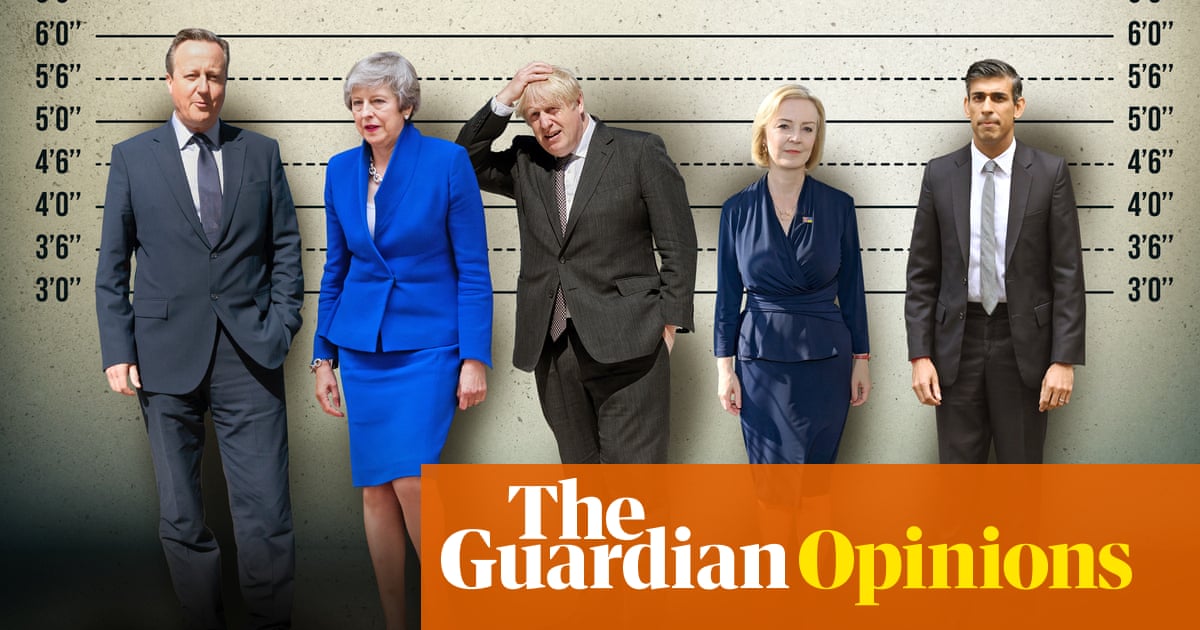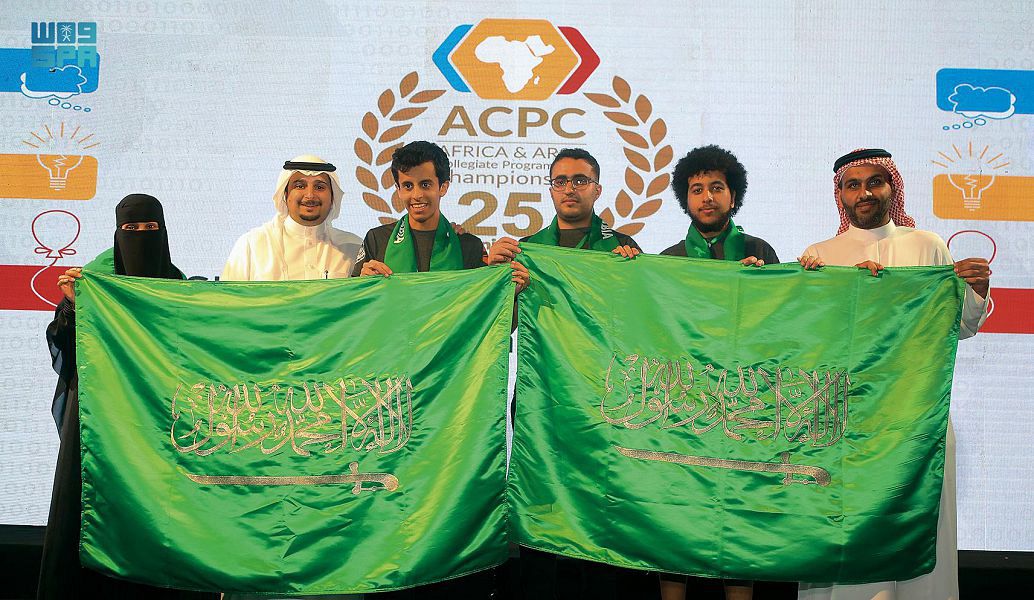
When the men of England last won a significant international football tournament (you may know that this was 55 years ago), the official mascot was called World Cup Willie, a cartoon lion sporting a union jack football shirt and mop-top mane.
In the build-up to tonight’s final of the Euros, another mop-top, this one lamentably lacking in leonine qualities, has been doing his utmost to make a willy of himself. Before the match with Ukraine, a giant St George’s Cross was laid out in Downing Street for posing purposes by Boris Johnson, despite his passion for the game having gone hitherto undetected. He was seen at the semi-final against Denmark wearing a Three Lions top over his business shirt and tie, but under his suit jacket, an ensemble as clumsy as it was cynical, and one that suggests he is not fully conversant with stadium dress codes. The prime minister’s under-strappers are now spinning the idea of a celebratory additional bank holiday as a reward for an England victory. Genuine fans will want their team to win the trophy for the achievement itself, not a day off.
Many other Tories who have previously been furious opponents of “bringing politics into football” have been photobombing social media with snaps of themselves in hastily purchased England kit. In her desperation to scramble aboard the bandwagon, Priti Patel neglected to have the package creasing ironed out before she stuck on the shirt, while Rishi Sunak forgot to snip off the sales tags. This competition to drink from the euphoria around the team is an all-party sport. Sir Keir Starmer released a photo of himself celebrating the victory over the Danes while declaring that the team have “shown the best of England”. The Labour leader at least has a true claim to be an avid football fan. The ball sports previously associated with the prime minister are ping-pong, the Eton wall game and the notorious occasion when he flattened a 10-year-old during what was supposed to be a casual game of street rugby.
If England lift the trophy tonight, it will be thanks to a group of talented players under a great manager. If they don’t, it will be because they were not quite good enough to prevail over Italy. It will have nothing to do with politicians playing for advantage from the touchline.
This tournament has nevertheless been freighted with much more politics than we are used to. The relationship between the beautiful game and the uglier one played in the Westminster stadium has changed over the years. Politicians have become more anxious to associate themselves with footballing success, and footballers have become more politically engaged in the decades that have passed since England lifted the Jules Rimet trophy in 1966. Bobby Moore and his teammates generally avoided the political world and it was so indifferent to their achievements that the captain was never knighted before his death in 1993. Star players of the 1980s usually resisted being drawn on their politics. On the occasions when one did voice an opinion, they were quite likely to talk about their admiration for Margaret Thatcher.
I would not presume to guess which way individual members of the England squad vote, but they do not present as natural Tories and their matches were not won on the playing fields of Eton. They have foregrounded life stories involving modest or challenging family circumstances when they were growing up. Several of the squad are effective social activists for progressive causes. Marcus Rashford is a powerful campaigner for an end to child hunger and has twice forced a retreat on the government over free school meals. Raheem Sterling has displayed moral leadership in the fight against racism. Harry Kane wore a rainbow-coloured armband to mark Pride month during the match against Germany.
Their manager, Gareth Southgate, published a superbly crafted “Dear England” letter just before the tournament began. He gave eloquent expression to his belief in an England united not in an angry and ugly nativism, but a positive patriotism at ease with and enriched by the country’s diversity.
“Our players are role models,” he wrote. “It’s their duty to continue to interact with the public on matters such as equality, inclusivity and racial injustice, while using the power of their voices to help put debates on the table, raise awareness and educate.” He celebrated the idea that “we are heading for a much more tolerant and understanding society”.
Tony Blair would have no problems putting his arms around that credo. Were he still prime minister, David Cameron would have tried to. Keir Starmer retweeted the Southgate letter, perhaps a little enviously. A likable squad and manager expressing values he’d call his own ought to help the Labour leader, but it also throws into relief his struggles to find a persuasive way to articulate a progressive patriotism on behalf of his party.
Much as the prime minister yearns to steal himself a slice of their glory, embracing this team authentically is impossible for a Johnsonified and Brexified Tory party. They would like to interpret the squad’s successful run as a Brexit dividend: England’s potential unleashed by the great escape from Europe. Yet the composition of the team makes a nonsense of that self-serving script. Rather than demonstrate a triumph for English exceptionalism, the side displays the virtues of fusing homegrown qualities and traditions with talents and lessons absorbed from elsewhere. This squad honed their skills playing in Europe or with English clubs under the mentoring of elite foreign managers such as Marcelo Bielsa, Pep Guardiola and Jurgen Klopp. The team has a diverse ancestry. Captain Harry Kane has an Irish father. Raheem Sterling was born in Jamaica. The parents of Bukayo Saka, a breakout star of the tournament, are Nigerian. As the sports writer Jonathan Liew has pointed out, 13 of the 26-man squad could have chosen to play for another nation.
What this group says about modern England doesn’t fit with the conception of the country that grips a large part of the Conservative mind. This England team isn’t their version of England. The starkest illustration of that has been the way in which Tories have attacked the side for taking the knee as a collective declaration of solidarity against racism. The Conservative MP for Ashfield, Lee Anderson, issued an absurdly self-aggrandising proclamation that he would not watch “his beloved England team” for so long as the players knelt at the beginning of games. The latest from his camp is that he will not look at the final, but will be checking the score on his phone, which is kind of cheating on his own boycott.
This runs deeper in the Conservative party than just one asinine backbencher. Priti Patel, the same Priti Patel who is now a replica fan, scoffed that taking the knee was “gesture politics” and defended the minority of fans who booed at the players. The prime minister didn’t rebuke the home secretary and only said that he did not want fans to boo when he grasped he was on the unpopular side of that argument.
In response to the “Dear England” letter, some Tory MPs could be heard grunting that the England manager “shouldn’t be getting political”, by which they meant he should shut up if he didn’t share their worldview. One Tory strategist sniffed to the Financial Times that the letter was “suspiciously well-written”, using the insulting old trope that people in football are too dim to be allowed to express views of their own.
Yet even these Tories have surely noticed that the public find the thoughtful and self-deprecating England manager and a team that doesn’t behave like prima donnas a great deal more appealing than the narcissistic mismanager at Number 10 and his inept cabinet squad.
A report by the thinktank British Future found that two-thirds of white and non-white citizens agree that the team is a positive symbol of an England that “belongs to people of every race and ethnic background”. The inclusive England showcased by a diverse and harmonious squad that places its emphasis on collective endeavour is the antithesis of the exclusive and reactionary England represented by snarly Tories waging dismally divisive culture wars.
If England win tonight, Gareth Southgate and his players will be national heroes. If they lose, they will still have given the country much to admire and think about. That can’t be hijacked from them, even by a thief as shameless as Boris Johnson.
Andrew Rawnsley is Chief Political Commentator of the Observer












